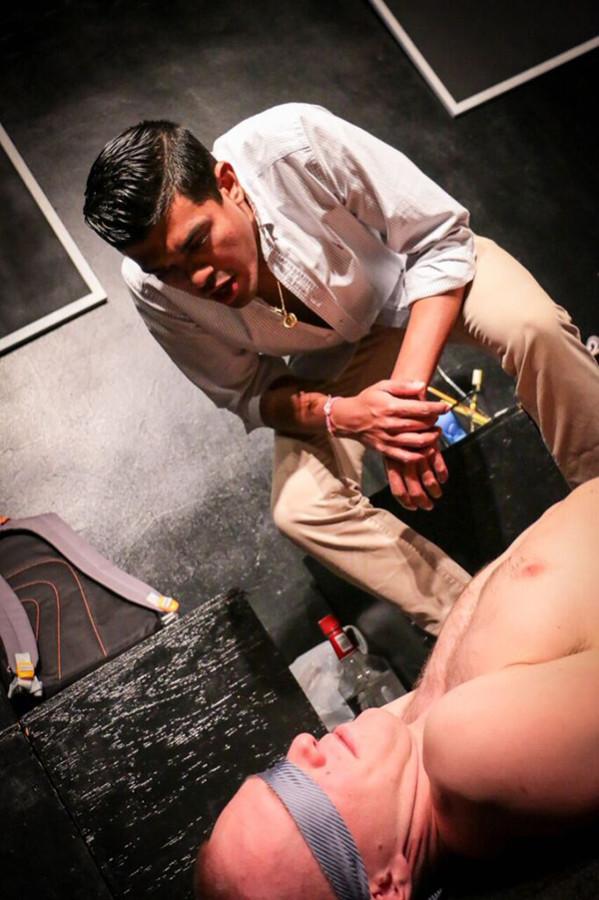Tisch sophomore’s play questions fraternity hazing
The final performances of Tisch Sophomore, Jake Rosenberg’s new play, “Brothers”, took last weekend on Nov. 14 and 15t.
November 23, 2015
Tisch sophomore Jake Rosenberg questions the practice of fraternity hazing, privilege and perception of masculinity in his new play “Brothers.” In light of the startling number of hazing-related deaths, “Brothers” explores the centuries-old practice of hazing and its connotations of masculinity and power.
This one-act play is set in a college dorm at the fictitious Faber University, a subtle nod to the cult classic “Animal House.” “Brothers” follows roommates John (Theo Iyer), a student from a wealthy family with a long legacy in Greek life who himself is rushing a fraternity, and Joe (Nathan Simpson), a student who served in the military and was not accepted into a fraternity. The story begins with John asking Joe to let him record a video of Joe being spanked with a paddle as part of an initiation scavenger hunt. Joe refuses, which sparks a critical conversation between them about hazing practices, masculinity, privilege and acceptance. This conversation turns volatile and violent, which provides a shocking commentary on expected masculinity imposed by society and what that means for both men.
The topic of masculinity is ever-present in the play and is analyzed in great detail, alluding to the fact that John and Joe feel the need to participate in a fraternity or a similar group to feel truly masculine. Because of the masculinity associated with fraternities, heteronormativity, overt pride and a fear of showing emotion is instilled in the minds of young men.
The impeccable acting, stage direction (Sophia Cannata-Bowman), combat choreography (Mary St. Angelo) and beautifully blunt writing all work flawlessly together to create a truly chilling show. It is uncomfortable, frightening and disturbing for all the right reasons. The horrifyingly well-choreographed fight sequences are physically uncomfortable to watch and the ever-present hiding of true emotions speak a shocking truth about institutionalized masculinity and the dangers of hazing.
In addition to its debut at the Manhattan Repertory Theatre in New York, “Brothers” simultaneously premiered at Tulane University, which has a large Greek life population. Rosenberg hopes to see his play performed over many more college campuses to both spark a discussion about hazing and force people to be more conscious of these cultural practices.
“It is supposed to be shocking, disturbing,” Rosenberg said. “Not because it is violent or because of the swearing but because it presents the truth — emotional truth.”
Rosenberg’s shockingly honest, but very conversational style of writing, combined with the play’s authentic direction made it clear that frat hazing isn’t a highly dramatized or unique occurrence, but a very common, ongoing practice in universities across the United States.
“[‘Brothers’] doesn’t tip-toe around the issue,” Rosenberg said. “I want to be upfront about it. It isn’t about calling people out, it’s no grand conspiracy — but there is too much evidence to ignore.”
“Brothers” just finished its run at the Manhattan Repertory Theatre, but it is just the beginning for this play.
A version of this article appeared in the Nov. 23 print edition. Email Joseph Myers at [email protected].












































































































































